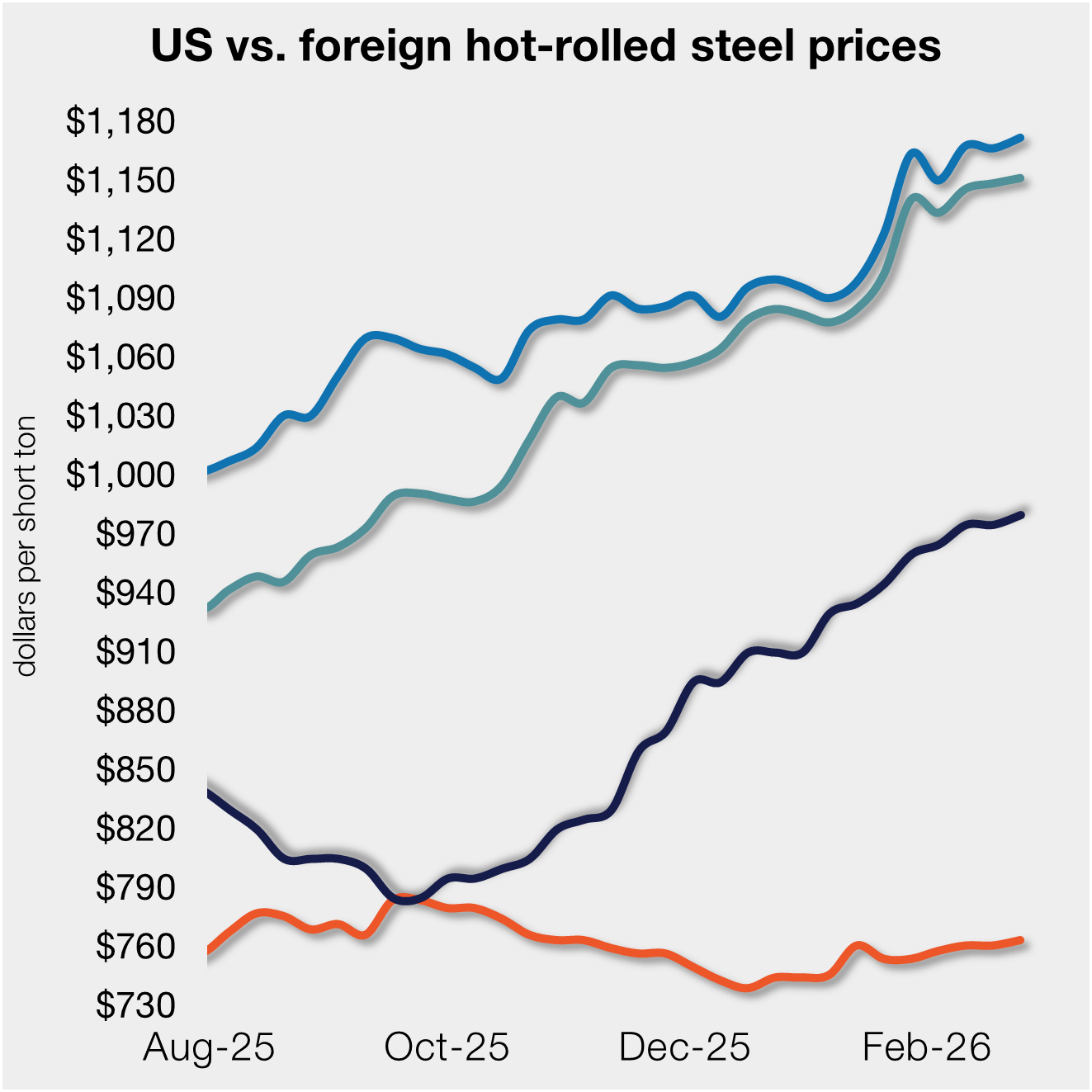Overseas

September 8, 2019
HRC Price Comparison: U.S., Germany, Italy and Far East Asia
Written by Brett Linton
The following calculation is used by Steel Market Update to identify the theoretical spread between foreign hot rolled steel prices (delivered to U.S. ports) and domestic hot rolled coil prices (FOB domestic mills). We want our readers to be aware that this is only a “theoretical” calculation as freight costs, trader margin and other costs can fluctuate, ultimately influencing the true market spread.
We are comparing the SMU U.S. hot rolled weekly index to CRU hot rolled weekly indices for Germany, Italy and the Far East (East and Southeast Asian port).
![]() SMU includes a 25 percent import tariff effective on foreign prices after March 23, 2018. We then add $90 per ton to the foreign prices in consideration of freight costs, handling, trader margin, etc., to provide an approximate “CIF U.S. ports price” that can be compared against the SMU U.S. hot rolled price. Note that we do not include any anti-dumping (AD) or countervailing duties (CVD) in this analysis.
SMU includes a 25 percent import tariff effective on foreign prices after March 23, 2018. We then add $90 per ton to the foreign prices in consideration of freight costs, handling, trader margin, etc., to provide an approximate “CIF U.S. ports price” that can be compared against the SMU U.S. hot rolled price. Note that we do not include any anti-dumping (AD) or countervailing duties (CVD) in this analysis.
German HRC
As of Wednesday, Aug. 21, the CRU German HRC price was $471 per net ton, down $2 from the previous week but up $1 from two weeks prior. Adding tariffs and import costs, that puts the German price at $679 per ton delivered to the U.S. The latest SMU hot rolled price average is $575 per ton, down $10 over both last week and two weeks prior. Therefore, domestically sourced HRC is theoretically $104 per ton cheaper than imported German HRC; the spread was $96 last week and $93 two weeks ago. U.S. prices have have held this advantage for 42 consecutive weeks now.
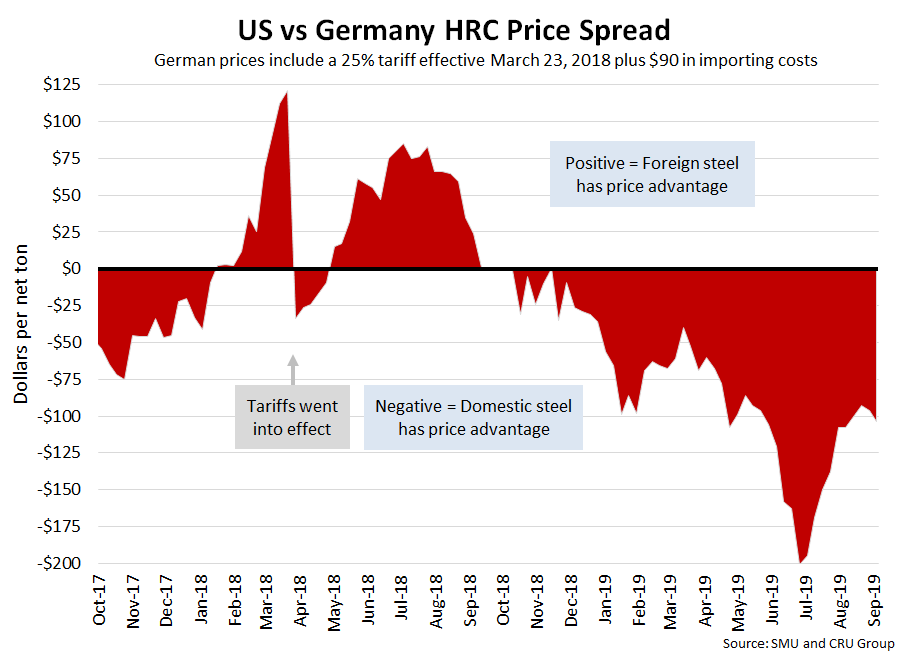
Italian HRC
CRU published Italian HRC prices at $444 per net ton, down $1 over both last week and two weeks ago. After adding tariffs and import costs, the delivered price of Italian HRC is approximately $645 per ton. Therefore, domestic HRC is theoretically $70 per ton cheaper than imported Italian HRC; the spread was $61 for the previous two weeks. U.S. prices have have now held this advantage for 22 consecutive weeks.
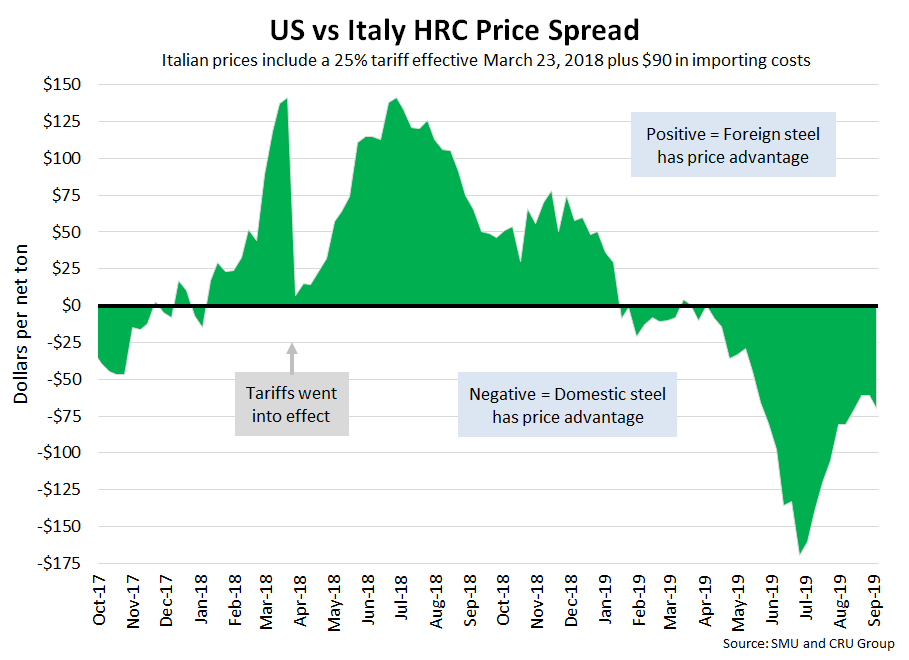
Far East Asian HRC
The CRU Far East HRC price fell $3 over last week to $425 per net ton, down $8 from two weeks prior. Adding tariffs and import costs, the delivered price of Far East HRC to the U.S. is $621 per ton. Therefore, U.S. produced HRC is theoretically $46 per ton cheaper than imported Far East Asian HRC; the spread was $40 last week and $46 two weeks ago. Domestic prices have have held this advantage for 30 consecutive weeks now.
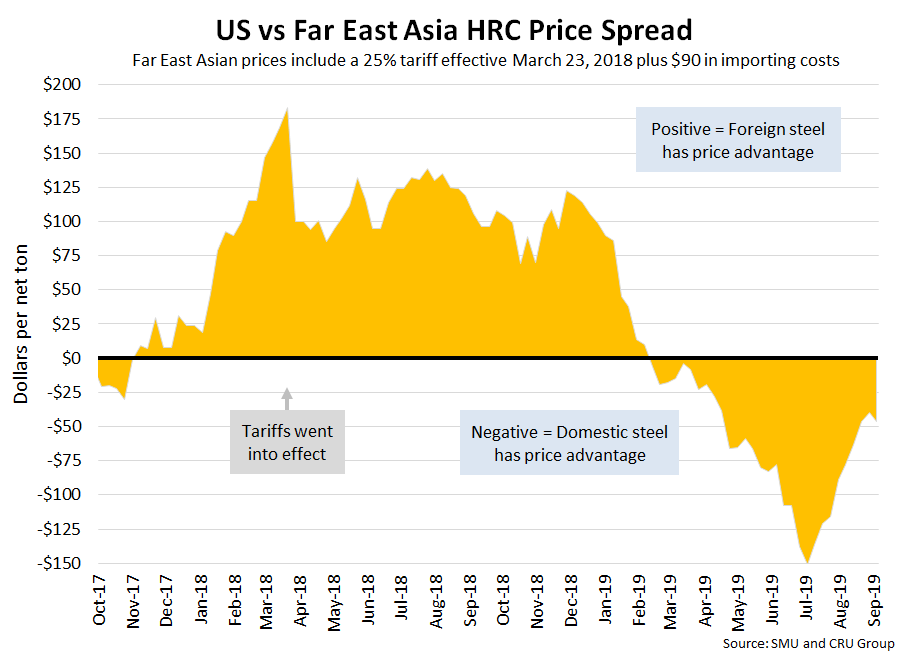
The graph below shows all four prices together and points out the effective date of the tariffs. Foreign prices are referred to as “equalized,” meaning they have been adjusted with the tariffs and importing costs for an apples-to-apples comparison against the U.S. price.
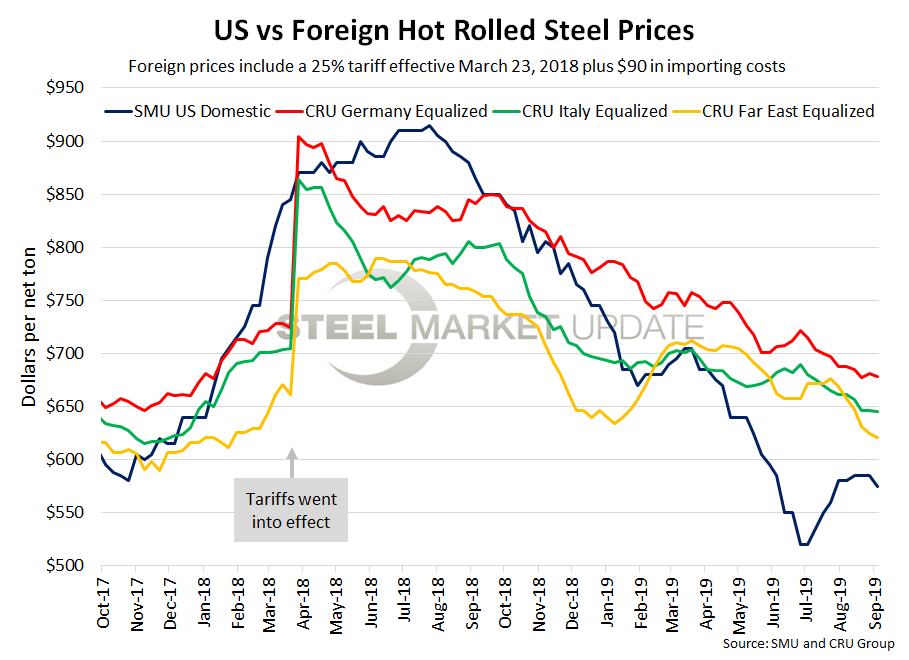
Note: Freight is an important part of the final determination on whether to import foreign steel or buy from a domestic mill supplier. Domestic prices are referenced as FOB the producing mill, while foreign prices are FOB the Port (Houston, NOLA, Savannah, Los Angeles, Camden, etc.). Inland freight, from either a domestic mill or from the port, can dramatically impact the competitiveness of both domestic and foreign steel. When considering lead times, a buyer must take into consideration the momentum of pricing both domestically and in the world markets. In most circumstances (but not all), domestic steel will deliver faster than foreign steel ordered on the same day.






